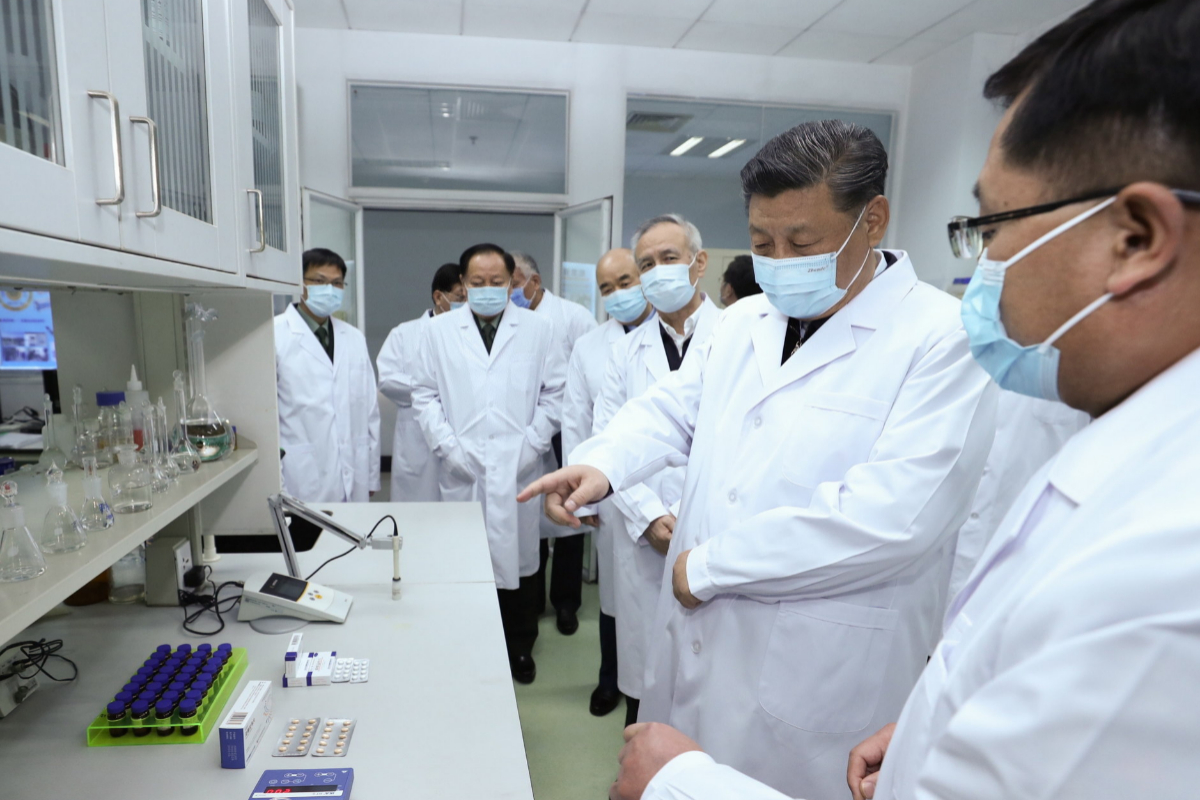- Last minute, Madrid keeps public transport open but will disinfect it daily by the coronavirus
- PyR. Coronavirus symptoms, treatment and how to avoid contagion
- Coronavirus: Map of the coronavirus: thus it has expanded throughout Spain and the world
48 days ago, the Chinese authorities made an unprecedented decision in the Asian giant: to close the city of Wuhan and isolate its 11 million inhabitants because a rare pneumonia was spreading that had already left 17 dead and 550 infected. Today, after that pneumonia became an epidemic, with more than 4,000 dead and more than 100,000 worldwide, the zero zone begins to see the light. In China they already sing victory. The Asian country has risen this morning with 19 new cases of contagion. The lowest figure since this health crisis began. Therefore, President Xi Jinping has moved, for the first time since the outbreak, to Wuhan. A clear signal for the rest of the world to know that China has won the battle against the coronavirus.
The first photos, disseminated by the state news agency Xinhua, of the Chinese president at the epicenter of the epidemic are at Huoshenshan Hospital, one of the first centers, led by the military, which was built in record time in response to the outbreak. One of the propaganda newspapers of the Communist Party, People's Daily, reported that Xi would inspect the prevention and control work in the city. Also that I would visit doctors, patients and volunteers.
If there was any doubt, the state media, which have published complimentary articles on the "constant attention" of the president who "personally directs the people's war against the epidemic," has been responsible for the entire country to see the images of the leader speaking - through a videoconference- with the toilets and the sick. Like the videos in which the president's walk through the streets of Wuhan was seen, greeting the neighbors who jelly from the windows.
Many hope that this visit means that Wuhan's quarantine will gradually open up. As in the rest of Hubei province, closed since mid-January, when more than 56 million people were trapped in the largest sanitary bolt ever seen. In the epicenter, 14 of the 16 field hospitals that were enabled to care for the infected have already been closed. This list includes stadiums and convention centers converted into makeshift hospitals with more than 20,000 beds to care for patients.
Divide citizens according to their risk of infection
Also, new news that has been known today is that in Hubei they will start using an application that has already been developed in other parts of the country, which divides citizens according to their risk of infecting other people. It is called Alipay Health Code and is already mandatory in more than 200 Chinese cities. It consists of a government-managed software that classifies people into three colors: red, yellow and green.
If the person is part of the green group, they can move around their city, even travel through the province. But if your mobile indicates that it is within the other two colors, it will remain a "person at risk" and must remain at home. Although it has not yet been specified when this application will start working specifically in Wuhan, which would mean that it would end the current blockade.
Xi Jinping's visit, although bathed in propaganda, has given hope to neighbors who have been locked in their homes for more than a month. They hope their nightmare ends soon. "We had toll-free phone numbers that we could call if we needed some kind of psychological help or if more supplies were needed. Everything we have experienced has been very hard," says Yung Fan, a young man from the central Hanyang district who has been trapped at home with his parents this time.
"Everything that was outside was confusing. The news here sent peace of mind, but if I read foreign newspapers it seemed that everything was getting worse. And among the neighborhood chats there was always some saying that a few had already been positive in their building," explains Chu Yuan, another girl who resides in the Shekou district, near the seafood and wild animals market designated as the zero zone of the coronavirus. Chu's Wuhan bolt was caught visiting his parents' house for the Chinese New Year. He hopes to return soon to the city where he lives, Shanghai, and resume his work as an administrator. "We have not been told yet when normality will really return. But the president is here is good news because if he has gone out there is no danger," says Chu.
"A victory in Wuhan is a victory for Hubei. A victory in Hubei is a victory for China," the Xinhua agency editorial said today. The National Health Commission has indicated that 17 of the 19 new cases of infection recorded today are in Wuhan. The coronavirus has not left the city for days except for cases imported from other countries. Like the two of today: one in Beijing, from a girl who came from Britain, and another in Guangdong Province, related to a Chinese student who left Spain on March 8.
It is already the second case of coronavirus imported from Spain. The previous one was last Friday, with the positive of a 70-year-old Chinese woman who on March 1 took a plane from Madrid and stopped in Abu Dhabi. In Spain he had been since January 10. Then he went to Beijing airport and took another plane to Shenzhen.
According to the criteria of The Trust Project
Know more- Coronavirus
- China
- Xi Jinping
CoronavirusChina achieves its lowest number of infected: 44 in one day
HealthThe Chinese president unsuccessfully ordered the initial containment of the coronavirus in Wuhan on January 7
Asia Economic authorities begin to take the impact of the coronavirus seriously after China's slowdown

